Curator & Researcher
- Kyoko Iwaki (Japan)
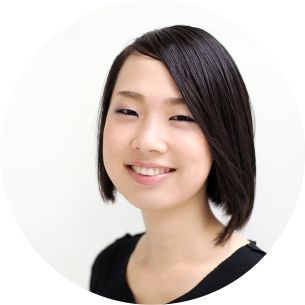
-
Kyoko is a theatre journalist and a Japanese theatre researcher based in London and Tokyo. She has conducted interviews in 25 countries and writes in both English and Japanese. She is an associate lecturer at Goldsmiths, University of London. Before commencing scholarly research, she worked for over a decade as a theatre journalist, contributing to media outlets such as The Asahi Shimbun. For the past few years, Kyoko has been working also as an independent artistic advisor, contributing to organizations such as Festival/Tokyo and National Theatre Wales. She was appointed Associate Creative Partner of Kanagawa Arts Theatre in 2010. She has lectured at numerous venues, including the Japan Foundation, London and University of Arts, London. Her debut book, Tokyo Theatre Today: Conversations with Eight Emerging Theatre Artists (Hublet Publishing), was published in 2011, and Ushio Amagatsu: Des rivages d’enfance au bûto de Sankai Juku (Actes Sud), a biography of the choreographer of Butoh company Sankai Juku, was published in French in 2013 and in Japanese (Iwanami Shoten) in 2015. Her essay on Akira Takayama has been published in ‘Fukushima’ and Arts – Negotiating Nuclear Disaster (Routledge). She recently wrote a paper on Toshiki Okada for New Theatre Quarterly, as well as contributing to A History of Japanese Theatre (Cambridge University Press), set for publication in 2016.
- Haeju Kim (Korea)
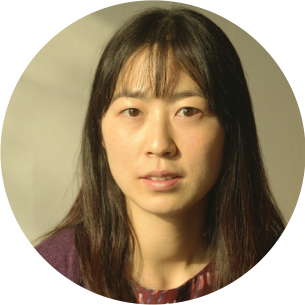
-
Haeju is an independent curator and writer based in Seoul. She worked as a researcher at the National Theater Company of Korea(2011-2012) and as an assistant curator at the Nam June Paik Art Center(2008). She was chief researcher of Performing Art Archive for Archives and Research Center at Asia Culture Complex, Gwangju (2014.3-2015.8) . She curated “Society of Choreography” (Nam June Paik Art Center, 2015), “The Decisive Moment” (National Contemporary Dance Company of Korea, 2014), “Memorial Park” (Palais de Tokyo, Paris, 2013) and “Theater of Sand” (Culture Station 284, Seoul, 2012), among others. She has contributed articles on fine arts and performance to a number of Korean media and magazines such as Art in Culture, Article, and F. She completed the International Curatorial Training Program at the Ecole du Magasin in Grenoble, France (2007) and co-edited Harald Szeemann Invididual Methodology (2007, JRP / Ringier).
- Hyun-Suk Seo (Korea)
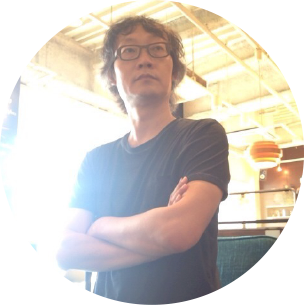
-
Hyun-Suk is an artist and theorist working on cinema, video art, performance, theatre, and interdisciplinary arts. His performance projects often aim to invite audience members to reinvent their own memories as well as senses. Heterotopia (Seoul, 2010/11), Desire Paths (Yongin, 2011), The Divine Prostitution of the Soul (Seoul, 2011), Heterochrony (Seoul, 2012), Resolutely Autumn Wind (Yokohama, 2013), and From the Sea (Tokyo, 2014) utilize goggles, earplugs, or audio recorders, among other wearable apparatuses, to sculpt audience experience, and investigate the limits and conditions of “theatre.” They take place on sites loaded with architectural traces of modernity, which is another subject of interest in his creative and textual works. His current cinematic projects include documentary films on the rise and/or decline of the architectural modernism in Asian countries such as South Korea, North Korea, Cambodia, and Japan. His video and performance works have been shown at Festival Bo:m, Gwangju Design Biennale, Venice Architecture Biennale, Festival/Tokyo, Clermont-Ferrand Film Festival, and Canal+, among others. He is the author of the books Monster/Father/Freud (2011) and The Art of the Future (forthcoming), and the co-editor of Ob.scene, a magazine on interdisciplinary creative practices.
- Ruijun Shen (China)
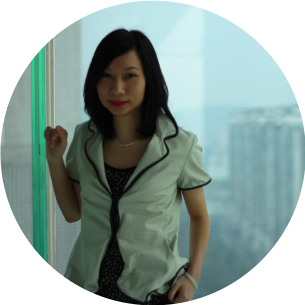
-
Ruijun is an artist and curator at Guangdong Times Museum, Guangzhou. She received two MFAs from the School of the Art Institute of Chicago and Montclair State University respectively. She has curated many successful shows, including “Shift: Exhibition on Young American Artists Creating On-site Artwork in China” (2011), “Pulse Reaction – An Exchange Project on Art Practice” (2012), “Gentle Wave in Your Eye Fluid – A Pipilotti Rist Solo Exhibition” (2013), and “Polit-Sheer-Form!” (2014) at the Queens Museum in New York. She has also co-curated many exhibitions, including “Landscape: the Actual, the Virtual and the Possible?” (2014) at Yerba Buena Center for the Arts in San Francisco and at the 6th Chengdu Biennale (2013). She is also an active contributor to many art journals, including LEAP, GALLERY and Art Asia Pacific.
- Jason Wee (Singapore)
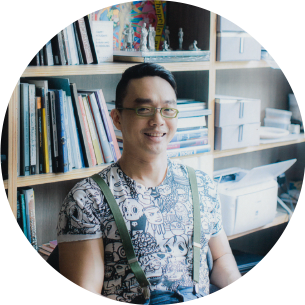
-
Jason is an artist and writer based in Singapore and New York. His art practice is concerned with the hollowing out of singular authority in favour of multiple perspectives and polyphony. He founded and runs Grey Projects, an artists’ library, gallery and residency that focuses on experimental curatorship, new writings, and design propositions. He is an editor for Softblow poetry journal. He was a 2005-2006 Studio Fellow at the Whitney Museum Independent Study Program. He was a 2013-14 Artist-in-Residence at Gyeonggi Creation Center and 2014-15 Writer-in-Residence at National University of Singapore University Scholars Program. In 2010, he co-curated the acclaimed “Beyond LKY” exhibition and co-organized “The Future of Exhibition” at the Institute of Contemporary Art, Singapore. Other curatorial projects include “Singapur Unheimlich” (2015) “When You Get Closer To The Heart, You May Find Cracks” by the Migrant Ecologies Project (NUS Museum, 2014). His performance script Tongues, co-written with Sean Tobin, was commissioned by the Singapore Fringe Festival and premiered at the National Museum Singapore in February 2012. His latest book The Monsters Between Us, was named by TODAY newspaper as one of the top art picks of 2013.
- Jow-Jiun Gong
(Taiwan)
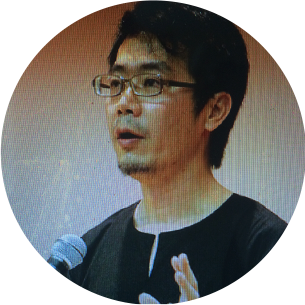
-
In 1998, Jow-Jiun graduated from the Department of Philosophy of the National Taiwan University with his dissertation Dialectics between Body and Imagination: Nietzsche, Husserl, Merleau Ponty. After teaching positions at several universities in Taiwan, in 2007 he was appointed associate professor and director of the doctoral program in art creation and theory at Tainan University of the Arts. From 2009, he has also organized the quarterly art magazine Art Critique in Taiwan (ACT), as chief editor and chairman, and established it as a public journal. One year later in 2010, ACT won the Prize of National Publication as Outstanding Cultural Magazine. Jow-Jiun is also an acclaimed Chinese translator of writings by the likes of Gaston Bachelard, Maurice Merlau-Ponty and Carl Gustav Jung into Chinese. Besides his research, Jow-Jiun is engaging with curatorial activities. In 2013, he curated the exhibition “Are We Working too Much?” at the Eslite Gallery, Taipei. Related to the exhibition, he published two books, Are We Working too Much? I: Workbook and Are We Working too Much? II: Field Narratives. In that same year, he was appointed dean of the College of Visual Art of the Tainan National University of the Arts.
- Fang-Tze Hsu
(Taiwan / Singapore)
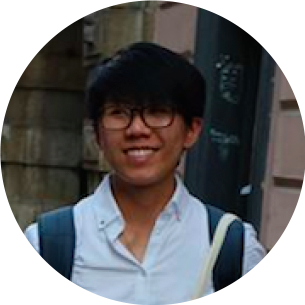
-
Hsu Fang-Tze is an independent researcher and a Ph.D. candidate in the Cultural Studies in Asia programme of the National University of Singapore. She holds an MA in curatorial studies from the School of the Art Institute of Chicago and is currently conducting field research in the Cold War archipelago of Asia. From 2010 to 2013, she served as the digital manager for the Asia Art Archive. She was appointed as a curator for the National Taiwan Museum of Fine Art in 2013. Her research interests include contemporary knowledge formation, Cold War aesthetics, memory, philosophies of technology, and the embodiment of artistic praxis in everyday life. Hsu has been pointed as the co-curator of the 5th Taiwan International Video Art Exhibition, 2016 and her writings can be found in ARTCO Magazine (Taiwan) and LEAP (China).
- William Andrews
(Japan)
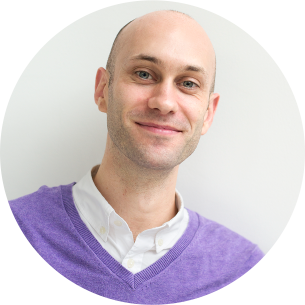
-
William is a writer and translator based in Tokyo. Born in the UK, he graduated from King’s College London with a degree in English literature and has lived in Japan since 2004. He specializes in theatre, art and history. His research includes postwar Japanese protest movements, radicalism and counterculture. His book Dissenting Japan: A History of Japanese Radicalism and Counterculture, from 1945 to Fukushima was published in 2016.
- Natsuko Odate (Japan)
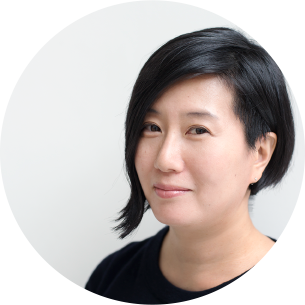
-
Since 2000, Natsuko has managed many leading Japanese artists, including Nobuyoshi Araki, Yasumasa Morimura, Emiko Kasahara, and Miwa Yanagi. She has also served as an editor of online magazine ART iT since 2010. She was a Curatorial Associate for the Yokohama Triennale 2014. Her other art exhibition and events include “Miwa Yanagi: Windswept Woman – The Old Girls’ Troupe” (Venice Biennale, Japan Pavilion, 2008), “Yasumasa Morimura: Theater of Self” (Andy Warhol Museum, Pittsburgh, 2013), and “Nobuyoshi Araki: Ojo Shashu” (Toyota Municipal Museum of Art, Niigata City Art Museum, Shiseido Gallery, et al, 2014).
- Chiaki Soma (Japan)
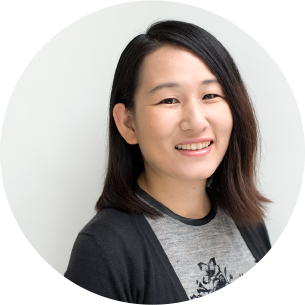
-
Chiaki is an art producer based in Japan. She was the first program director of Festival/Tokyo, Japan’s leading performing arts festival, from 2009-2013, as well as the first director of Steep Slope Studio, Yokohama, from 2006-2010. Chiaki was involved in shaping Japanese cultural policy as a member of the Cultural Policies Committee at the Council for Cultural Affairs from 2012-2015. She created the residency program r:ead (Residence East Asia Dialogue) and works to build platforms across Asia for better communication through the arts and criticism, as well as programming, curating and producing projects in Japan. In 2014, she established NPO Arts Commons Tokyo, an independent platform and network for Asian art professionals whose aim is to renew the relationship between arts and society today. Through Arts Commons Tokyo she continues r:ead, as well as producing other projects such as Scene / Asia and a series of lecture performances in Tokyo. She is a jury member for several residency programmes and awards, and is also an active lecturer across Asia. In 2015, she received the Chevalier de L’Ordre des Arts et des Lettres. She is a graduate of Waseda University, Tokyo, and Université Lumière Lyon 2, France.
- Rieko Suzuki (Japan)

-
Rieko is an editor and writer based in Tokyo. She graduated from Waseda University with a degree in theatre studies. She served as the chief editor of performing arts magazine Theatre Guide and turned freelance in 2009. She writes essays and reviews on the performing arts for theatre magazines, PR magazines, performance programs, and more. She is also involved with theatrical documentation, and participated in a project in 2013 at the graduate school of Aoyama Gakuin University compiling Japanese contemporary theatre reviews into an online archive.
Researcher
- Haruka Iharada (Japan)
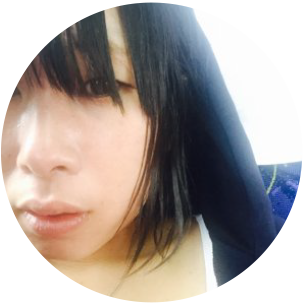
-
Born in 1991 in Okinawa, Haruka’s areas of interest include art movements and alternative culture. She has organized projects such as exhibitions, film screenings, and symposiums related to her research interests in Asia and Okinawa. She has also recently worked on the Yorimichi Caravan Project (http://yorimichicaravan.com/), a filmmaking project and screening tour in seven cities across Asia, and curated Jun Kawada’s solo show, “Endless Past” (2015, Tokyo).
- Kenichiro Egami (Japan)
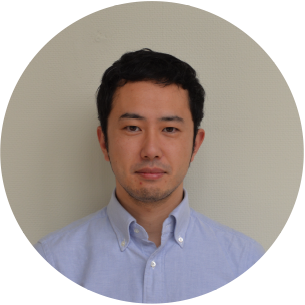
-
An independent researcher and photographer, Kenichiro pursues independent research and photographic documentation of autonomous spaces, activism, and art in East Asia. He is also a member of art space tetra in Fukuoka and is working on his first photography collection. He co-translated David Graeber’s Democracy Project (2015) and “Art of the Nuclear War – Collective Creation and Movements” in Creative Space-Art and Spatial Resistance in East Asia (2013, DOXA, Hong Kong).
web: http://www.kenichiro-egami.com/
- Mika Eglinton (Japan)
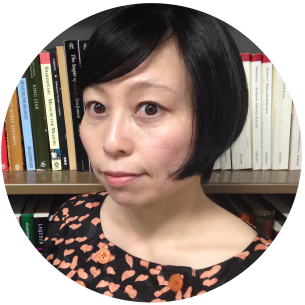
-
A theatre researcher, critic, translator and dramaturge, Mika is Associate Professor of English Theatre and Cultural Studies at Kobe University of Foreign Studies. Her areas of research are on early modern and contemporary British drama, with particular emphasis on productions of Shakespeare in “Asian” contexts. She is a regular writer for English- and Japanese-language media including The Japan Times. She is also one of the core members of the Asian Shakespeare Intercultural Archive (A|S|I|A) and Asian Women Performing Arts Collective (AWPAC).
Curator & Researcher
- Kyoko Iwaki (Japan)

-
Kyoko is a theatre journalist and a Japanese theatre researcher based in London and Tokyo. She has conducted interviews in 25 countries and writes in both English and Japanese. She is an associate lecturer at Goldsmiths, University of London. Before commencing scholarly research, she worked for over a decade as a theatre journalist, contributing to media outlets such as The Asahi Shimbun. For the past few years, Kyoko has been working also as an independent artistic advisor, contributing to organizations such as Festival/Tokyo and National Theatre Wales. She was appointed Associate Creative Partner of Kanagawa Arts Theatre in 2010. She has lectured at numerous venues, including the Japan Foundation, London and University of Arts, London. Her debut book, Tokyo Theatre Today: Conversations with Eight Emerging Theatre Artists (Hublet Publishing), was published in 2011, and Ushio Amagatsu: Des rivages d’enfance au bûto de Sankai Juku (Actes Sud), a biography of the choreographer of Butoh company Sankai Juku, was published in French in 2013 and in Japanese (Iwanami Shoten) in 2015. Her essay on Akira Takayama has been published in ‘Fukushima’ and Arts – Negotiating Nuclear Disaster (Routledge). She recently wrote a paper on Toshiki Okada for New Theatre Quarterly, as well as contributing to A History of Japanese Theatre (Cambridge University Press), set for publication in 2016.
- Haeju Kim (Korea)

-
Haeju is an independent curator and writer based in Seoul. She worked as a researcher at the National Theater Company of Korea(2011-2012) and as an assistant curator at the Nam June Paik Art Center(2008). She was chief researcher of Performing Art Archive for Archives and Research Center at Asia Culture Complex, Gwangju (2014.3-2015.8) . She curated “Society of Choreography” (Nam June Paik Art Center, 2015), “The Decisive Moment” (National Contemporary Dance Company of Korea, 2014), “Memorial Park” (Palais de Tokyo, Paris, 2013) and “Theater of Sand” (Culture Station 284, Seoul, 2012), among others. She has contributed articles on fine arts and performance to a number of Korean media and magazines such as Art in Culture, Article, and F. She completed the International Curatorial Training Program at the Ecole du Magasin in Grenoble, France (2007) and co-edited Harald Szeemann Invididual Methodology (2007, JRP / Ringier).
- Hyun-Suk Seo (Korea)

-
Hyun-Suk is an artist and theorist working on cinema, video art, performance, theatre, and interdisciplinary arts. His performance projects often aim to invite audience members to reinvent their own memories as well as senses. Heterotopia (Seoul, 2010/11), Desire Paths (Yongin, 2011), The Divine Prostitution of the Soul (Seoul, 2011), Heterochrony (Seoul, 2012), Resolutely Autumn Wind (Yokohama, 2013), and From the Sea (Tokyo, 2014) utilize goggles, earplugs, or audio recorders, among other wearable apparatuses, to sculpt audience experience, and investigate the limits and conditions of “theatre.” They take place on sites loaded with architectural traces of modernity, which is another subject of interest in his creative and textual works. His current cinematic projects include documentary films on the rise and/or decline of the architectural modernism in Asian countries such as South Korea, North Korea, Cambodia, and Japan. His video and performance works have been shown at Festival Bo:m, Gwangju Design Biennale, Venice Architecture Biennale, Festival/Tokyo, Clermont-Ferrand Film Festival, and Canal+, among others. He is the author of the books Monster/Father/Freud (2011) and The Art of the Future (forthcoming), and the co-editor of Ob.scene, a magazine on interdisciplinary creative practices.
- Ruijun Shen (China)

-
Ruijun is an artist and curator at Guangdong Times Museum, Guangzhou. She received two MFAs from the School of the Art Institute of Chicago and Montclair State University respectively. She has curated many successful shows, including “Shift: Exhibition on Young American Artists Creating On-site Artwork in China” (2011), “Pulse Reaction – An Exchange Project on Art Practice” (2012), “Gentle Wave in Your Eye Fluid – A Pipilotti Rist Solo Exhibition” (2013), and “Polit-Sheer-Form!” (2014) at the Queens Museum in New York. She has also co-curated many exhibitions, including “Landscape: the Actual, the Virtual and the Possible?” (2014) at Yerba Buena Center for the Arts in San Francisco and at the 6th Chengdu Biennale (2013). She is also an active contributor to many art journals, including LEAP, GALLERY and Art Asia Pacific.
- Jason Wee (Singapore)

-
Jason is an artist and writer based in Singapore and New York. His art practice is concerned with the hollowing out of singular authority in favour of multiple perspectives and polyphony. He founded and runs Grey Projects, an artists’ library, gallery and residency that focuses on experimental curatorship, new writings, and design propositions. He is an editor for Softblow poetry journal. He was a 2005-2006 Studio Fellow at the Whitney Museum Independent Study Program. He was a 2013-14 Artist-in-Residence at Gyeonggi Creation Center and 2014-15 Writer-in-Residence at National University of Singapore University Scholars Program. In 2010, he co-curated the acclaimed “Beyond LKY” exhibition and co-organized “The Future of Exhibition” at the Institute of Contemporary Art, Singapore. Other curatorial projects include “Singapur Unheimlich” (2015) “When You Get Closer To The Heart, You May Find Cracks” by the Migrant Ecologies Project (NUS Museum, 2014). His performance script Tongues, co-written with Sean Tobin, was commissioned by the Singapore Fringe Festival and premiered at the National Museum Singapore in February 2012. His latest book The Monsters Between Us, was named by TODAY newspaper as one of the top art picks of 2013.
- Jow-Jiun Gong
(Taiwan)

-
In 1998, Jow-Jiun graduated from the Department of Philosophy of the National Taiwan University with his dissertation Dialectics between Body and Imagination: Nietzsche, Husserl, Merleau Ponty. After teaching positions at several universities in Taiwan, in 2007 he was appointed associate professor and director of the doctoral program in art creation and theory at Tainan University of the Arts. From 2009, he has also organized the quarterly art magazine Art Critique in Taiwan (ACT), as chief editor and chairman, and established it as a public journal. One year later in 2010, ACT won the Prize of National Publication as Outstanding Cultural Magazine. Jow-Jiun is also an acclaimed Chinese translator of writings by the likes of Gaston Bachelard, Maurice Merlau-Ponty and Carl Gustav Jung into Chinese. Besides his research, Jow-Jiun is engaging with curatorial activities. In 2013, he curated the exhibition “Are We Working too Much?” at the Eslite Gallery, Taipei. Related to the exhibition, he published two books, Are We Working too Much? I: Workbook and Are We Working too Much? II: Field Narratives. In that same year, he was appointed dean of the College of Visual Art of the Tainan National University of the Arts.
- Fang-Tze Hsu
(Taiwan / Singapore)

-
Hsu Fang-Tze is an independent researcher and a Ph.D. candidate in the Cultural Studies in Asia programme of the National University of Singapore. She holds an MA in curatorial studies from the School of the Art Institute of Chicago and is currently conducting field research in the Cold War archipelago of Asia. From 2010 to 2013, she served as the digital manager for the Asia Art Archive. She was appointed as a curator for the National Taiwan Museum of Fine Art in 2013. Her research interests include contemporary knowledge formation, Cold War aesthetics, memory, philosophies of technology, and the embodiment of artistic praxis in everyday life. Hsu has been pointed as the co-curator of the 5th Taiwan International Video Art Exhibition, 2016 and her writings can be found in ARTCO Magazine (Taiwan) and LEAP (China).
- William Andrews
(Japan)

-
William is a writer and translator based in Tokyo. Born in the UK, he graduated from King’s College London with a degree in English literature and has lived in Japan since 2004. He specializes in theatre, art and history. His research includes postwar Japanese protest movements, radicalism and counterculture. His book Dissenting Japan: A History of Japanese Radicalism and Counterculture, from 1945 to Fukushima will be published in early 2016.
- Natsuko Odate (Japan)

-
Since 2000, Natsuko has managed many leading Japanese artists, including Nobuyoshi Araki, Yasumasa Morimura, Emiko Kasahara, and Miwa Yanagi. She has also served as an editor of online magazine ART iT since 2010. She was a Curatorial Associate for the Yokohama Triennale 2014. Her other art exhibition and events include “Miwa Yanagi: Windswept Woman – The Old Girls’ Troupe” (Venice Biennale, Japan Pavilion, 2008), “Yasumasa Morimura: Theater of Self” (Andy Warhol Museum, Pittsburgh, 2013), and “Nobuyoshi Araki: Ojo Shashu” (Toyota Municipal Museum of Art, Niigata City Art Museum, Shiseido Gallery, et al, 2014).
- Chiaki Soma (Japan)

-
Chiaki is an art producer based in Japan. She was the first program director of Festival/Tokyo, Japan’s leading performing arts festival, from 2009-2013, as well as the first director of Steep Slope Studio, Yokohama, from 2006-2010. Chiaki was involved in shaping Japanese cultural policy as a member of the Cultural Policies Committee at the Council for Cultural Affairs from 2012-2015. She created the residency program r:ead (Residence East Asia Dialogue) and works to build platforms across Asia for better communication through the arts and criticism, as well as programming, curating and producing projects in Japan. In 2014, she established NPO Arts Commons Tokyo, an independent platform and network for Asian art professionals whose aim is to renew the relationship between arts and society today. Through Arts Commons Tokyo she continues r:ead, as well as producing other projects such as Scene / Asia and a series of lecture performances in Tokyo. She is a jury member for several residency programmes and awards, and is also an active lecturer across Asia. In 2015, she received the Chevalier de L’Ordre des Arts et des Lettres. She is a graduate of Waseda University, Tokyo, and Université Lumière Lyon 2, France.
- Rieko Suzuki (Japan)

-
Rieko is an editor and writer based in Tokyo. She graduated from Waseda University with a degree in theatre studies. She served as the chief editor of performing arts magazine Theatre Guide and turned freelance in 2009. She writes essays and reviews on the performing arts for theatre magazines, PR magazines, performance programs, and more. She is also involved with theatrical documentation, and participated in a project in 2013 at the graduate school of Aoyama Gakuin University compiling Japanese contemporary theatre reviews into an online archive.
Researcher
- Haruka Iharada (Japan)

-
Born in 1991 in Okinawa, Haruka’s areas of interest include art movements and alternative culture. She has organized projects such as exhibitions, film screenings, and symposiums related to her research interests in Asia and Okinawa. She has also recently worked on the Yorimichi Caravan Project (http://yorimichicaravan.com/), a filmmaking project and screening tour in seven cities across Asia, and curated Jun Kawada’s solo show, “Endless Past” (2015, Tokyo).
- Kenichiro Egami (Japan)

-
An independent researcher and photographer, Kenichiro pursues independent research and photographic documentation of autonomous spaces, activism, and art in East Asia. He is also a member of art space tetra in Fukuoka and is working on his first photography collection. He co-translated David Graeber’s Democracy Project (2015) and “Art of the Nuclear War – Collective Creation and Movements” in Creative Space-Art and Spatial Resistance in East Asia (2013, DOXA, Hong Kong).
web: http://www.kenichiro-egami.com/
- Mika Eglinton (Japan)

-
A theatre researcher, critic, translator and dramaturge, Mika is Associate Professor of English Theatre and Cultural Studies at Kobe University of Foreign Studies. Her areas of research are on early modern and contemporary British drama, with particular emphasis on productions of Shakespeare in “Asian” contexts. She is a regular writer for English- and Japanese-language media including The Japan Times. She is also one of the core members of the Asian Shakespeare Intercultural Archive (A|S|I|A) and Asian Women Performing Arts Collective (AWPAC).


